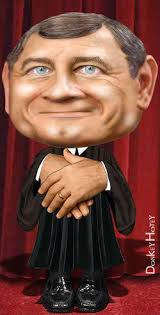“At the crux of the issue are two constitutional distinctions: whether the “corporations are people” rights of for-profit companies extent to religious rights for the corporation, as opposed to just their owners, and what kind of accommodations for different views are required….”
By Tristan Lejeune
December 6, 2013
The Supreme Court has agreed to hear new challenges to the Affordable Care Act on the grounds that its mandate that companies provide contraception options as part of their health plans violates employers’ religious freedom. At the crux of the issue are two constitutional distinctions: whether the “corporations are people” rights of for-profit companies extent to religious rights for the corporation, as opposed to just their owners, and what kind of accommodations for different views are required, which also relates to religious exceptions allowed for under the proposed Employment Non-Discrimination Act.
Darren Nadel of the law firm Littler Mendelson, says, of the contraception mandate cases that have made it through the appellate courts, there have been split decisions on how to determine if for-profit companies get religious rights, and if Congress has a “compelling interest” in limiting those rights for the benefit or protection of others.
“We’ve now had 15 judges – in five groups of three – deciding what they think the right way to analyze who is a person under the Religious Freedom Restoration Act. Between the 15 judges there are probably six or seven answers to that one question,” Nadel says. “This is a very bright group of judges all coming to very different conclusions.”
He says there are, however, some things that you can anticipate based on the composition of the Supreme Court. The current bench tends to take laws at their word, and not add or presume language not already present.
“So, as some of the judges in these circuit courts have said, the statute doesn’t say anything about profit or nonprofit, so why would we possibly add in that complexity?” Nadel says. “The lower courts have sort of struggled with that, because the question is, who is it that exercises a religious right?… And if corporations are people, then the next question is, is there a compelling interest that would allow Congress to inhibit Hobby Lobby exercising its religious freedom to stay away from the business of providing contraception.”
Indeed the two cases the high court will consider got opposite results in lower courts. The aforementioned Hobby Lobby, an arts-and-crafts chain with more than 20,000 employees who owners say is run on biblical principles, succeeding in convincing 10th Circuit U.S. Court of Appeals in Denver that the contraception mandate would violate its religious expression; the court could find no reason why a corporation-as-person would get constitutional protection for political reasons but not religious ones. By contrast, Philadelphia’s 3rd Circuit found that Mennonite cabinet-making company Conestoga Wood Specialties must comply with the law, in part because of the “total absence of case law” behind a business itself practicing religion.
“Even if we were to disregard the lack of historical recognition of the right, we simply cannot understand how a for-profit, secular corporation — apart from its owners — can exercise religion,” Circuit Judge Robert E. Cowen wrote at the time.
Nadel says it may come down to case-by-case calls on if each business has a compelling interest in that particular form of religious expression. What right does the owner of the company have, he asks, to say, this is the company’s belief? The question really is one of credibility, he says.
The courts can’t get into matter of whether something is an accurate religious belief, only if it is a real one that’s sincerely held, which could prove relevant again with enforcement of the pending-in-Congress Employment Non-Discrimination Act, which would ban refusing to hire or promote individuals on the basis of sexual orientation or gender identity.
Katharine Parker, co-head the firm Proskauer’s employment law counseling and training group, acknowledges ENDA has little chance of passing in the current Congress, but when and if it eventually does, most of the objections to it would likely have a religious root.
“You can’t discriminate on the basis of religious belief, but it’s a different situation if a law can impose and restrict the exercise of religion,” Parker says. “ENDA, as it’s written, has a broad exemption for religion, so, a church say, would not be bound by it. ‘The act shall not apply to a corporation, association, educational institution, institution of higher learning or society that is exempt from the religious discrimination provisions of Title VII of the Civil Rights Act of 1964,’” she adds, quoting from the legislation’s more recent version.
Parker points out ENDA would allow employers to demand employees adhere to “reasonable dress and grooming standards” and “nothing in the act would require the construction of new or additional facilities,” so those who identify as transgender may way have objections even if the bill is passed and enforced to a T.
Most very large American corporations already have some anti-discrimination policy relating to sexual preference or gender identification, Parker points out, but those who don’t should beware employees in multiple locations, where state and local laws can create extra requirements.


